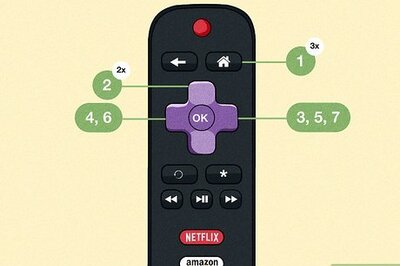
views
London: The Internet improves people’s ability to make snap decisions and filter large amounts of information, according to a new study.
In the study, Gary Small, director of the memory and aging research centre at the University of California, Los Angeles, found that the brains of those tested were markedly more active when carrying out Internet searches than when reading books.
However, the stimulation was particularly in the areas that control decision-making and complex reasoning. Areas associated to abstract thinking and empathy showed virtually no increase in stimulation.
“Young people are growing up immersed in this technology and their brains are more malleable, more plastic and changing than with older brains,” Times Online quoted Small, as saying.
“The next generation, as [Charles] Darwin suggests, will adapt to this environment. Those who become really good at technology will have a survival advantage – they will have a higher level of economic success and their progeny will be better off,” he added.
For the study, Small scanned the brains of 24 volunteers and found that browsing websites stimulated the frontal, temporal and cingulate areas of the brain, which control complex reasoning.
Older users and those who had not previously tried the Internet all showed similar effects.
Baroness Greenfield, director of the Royal Institution and author of ID: The Quest for Identity in the 21st Century, said: “The hypothesis in iBrain is that natural selection will weed out people with brains that are more emotional or more capable of abstract thought and that we will be left with people who are more autistic in tendency. I would agree.”
However, Igor Aleksander, emeritus professor of neural systems engineering at Imperial College London, said: “It may be that by using the Internet you stimulate different parts of the brain. However, it would be difficult to show this could not be achieved through other situations.”
The study is to be published in the American Journal of Geriatric Psychiatry.


















Comments
0 comment